
December is often a busy month for many South Africans, bringing extra financial pressure from festive spending, travel costs, and year-end obligations. For some, taking out a loan during this period can provide relief and help manage expenses more effectively. However, deciding whether December is a good time to borrow depends on your personal finances, employment stability, and the prevailing interest rate environment.
Key Takeaways
- December May Offer Stable Loan Conditions: With the repo rate at 7.00% and the prime lending rate at 10.50%, December could be a favourable time to apply for a loan if rates remain steady and inflation stays controlled.
- Strong Credit And Affordability Are Crucial: South African lenders assess your credit report, income, and existing debt before approving a loan. Maintaining a good credit score and realistic budgeting improves approval chances.
- Defaulting Has Serious Consequences: Missing repayments can lead to legal action, asset repossession, and long-term damage to your credit record, making it harder to access credit in future.
What Is a Loan
A loan is an amount of money that a financial institution lends to an individual or business to help cover either planned expenses or unexpected financial needs. The borrower must repay the loan together with any interest charges within an agreed period. Loans are structured in different ways to meet a range of financial purposes. A bank can offer either a secured loan or an unsecured loan, depending on the borrower’s situation and the purpose of the funds. A secured loan usually involves a larger amount, such as for the purchase of a home or vehicle, where the asset serves as collateral until the loan is fully paid. An unsecured loan, on the other hand, generally covers smaller amounts and is often used for personal loans or student loans, where no asset is required as security.
About Arcadia Finance
Find your perfect loan the easy way with Arcadia Finance. Compare 19 trusted NCR-approved lenders, pay no application fees, and enjoy a fast, secure process made for you.
Types Of Loans
Banks and financial institutions in South Africa offer a variety of loan products designed to meet different customer needs and financial goals.
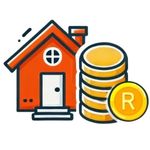
Home Loan
A home loan is used to finance the purchase of a property. The bank lends the required amount, and the property remains under the bank’s ownership until all repayments are completed. Borrowers repay the amount in monthly instalments at a fixed or variable interest rate over a period that typically extends to 20 years.

Student Loan
A student loan assists learners who need financial help to continue their studies at a recognised tertiary institution. The bank provides funding for tuition and sometimes related expenses during the study period. After completion of studies, the borrower begins repayment, usually with favourable interest rates and flexible repayment options that accommodate their income level.

Car Loan
A car loan enables consumers to purchase either a new or pre-owned vehicle. The bank pays for the vehicle upfront, and the borrower repays the amount through monthly instalments. Ownership of the vehicle remains with the bank until the final repayment is made in full.
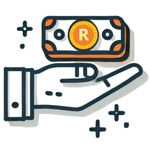
Personal Loan
Personal loans are designed to give borrowers access to cash for a variety of needs, such as home improvements, emergencies, or debt consolidation. The loan amount available depends on the bank’s criteria, the borrower’s credit profile, and their ability to afford monthly repayments.
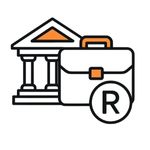
Business Loan
A business loan provides the capital required to start or expand a business. The bank lends a specific amount to the business, and repayments are made over an agreed term. The approval process and requirements depend on the bank’s policies, the financial history of the business, and whether it is a new or existing enterprise.
Should South Africans Borrow in December?
December often prompts fresh reflections on year-end spending and planning. With the repo rate currently at 7.00 % and the prime lending rate at 10.50 %, some analysts argue that borrowing in December might let you secure favourable terms ahead of any adjustments.
Why December Could Be a Good Time to Borrow
- With rates relatively stable for now, applying for a loan in December may allow you to take advantage of lower borrowing costs.
- If inflation remains contained and the economy grows only modestly, the central bank may refrain from increasing rates, making your repayments less volatile.
- Borrowers who arrange credit in December could benefit if rate cuts follow, since they will already have locked in a relatively lower base rate.
Why You Might Want to Wait
- The Monetary Policy Committee meets again in early 2026. If they react to inflationary pressures or external shocks by raising rates, new loan offers could come with higher interest.
- If your cash flow or employment situation is uncertain, delaying your borrowing decision may reduce exposure to rising costs.
- Some lenders may introduce special year-end or early-new-year promotions; waiting could allow you access to more attractive terms or incentives.
How To Improve Your Chances Of Getting A Loan

Check Your Credit Report
Your loan application can be instantly rejected if your credit report shows a debt review flag. Many South Africans are unaware that such a flag can appear without their knowledge. It is essential to check your credit report regularly with reputable credit bureaus to ensure there are no inaccuracies or outstanding issues that could affect your loan application.

Check Your Affordability
According to the National Credit Regulator (NCR), lenders are legally required to assess whether you can afford to repay a loan before granting it.
Banks use several factors to determine if you can handle a new loan. These include:
- Debt-to-Income Ratio: This measures how much disposable income remains after you have paid all your existing debts and monthly living expenses.
- Risk Profile: Your credit report and payment history are reviewed to assess reliability. Consistently paying existing debts on time improves your profile, while missed or late payments lower your credit score.
In South Africa, different credit bureaus may record varying credit scores, which means your affordability assessment could differ across banks. Each lender uses its own formula to calculate risk and may therefore offer different interest rates or loan amounts.
It’s also important to be realistic about what you can afford. Just because a bank approves you for a specific amount does not mean it is wise to borrow the full amount. Be honest about your living expenses such as groceries, transport, and utilities. Misrepresenting your spending could leave you without enough money to meet repayments, leading to financial strain.
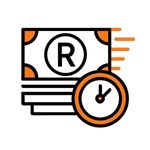
Make All Debt Repayments On Time
Paying your current debts on time every month helps to build and maintain a strong credit score. By consistently meeting your obligations, you demonstrate financial discipline and show lenders that you are a responsible borrower.
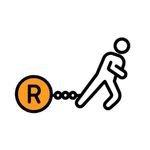
Reduce Your Existing Debt
Your affordability is partly influenced by how much you already owe. Paying off or reducing existing debt improves your financial position and increases your disposable income. This, in turn, allows you to qualify for larger loan amounts or better repayment terms.
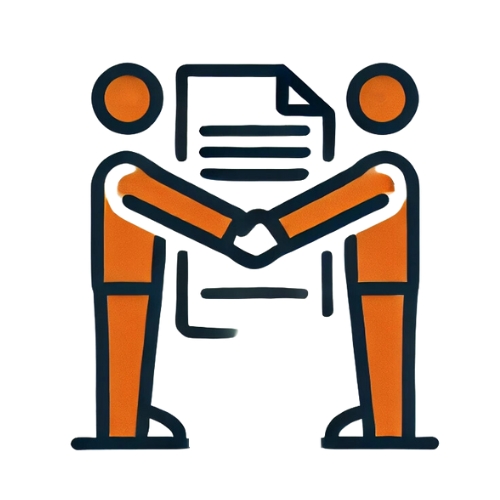
Consider A Co-Signer
If your credit score or affordability is not strong enough, you can apply with a co-signer who has a better financial profile. A co-signer with a good credit record can improve your chances of approval and may help secure lower interest rates. However, remember that the co-signer becomes equally responsible for repaying the loan.

Maintain A Steady Income
Lenders prefer applicants with a consistent income as this indicates stability and reliability. They will review your employment history and income statements to ensure you can meet monthly repayments. Whether you are employed or self-employed, it’s vital to show that you have a regular source of income.
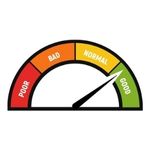
Build A Credit History
Having no credit history can also work against you. While excessive debt is risky, a complete lack of credit means lenders have no record of your repayment behaviour. Building a positive credit history through small, manageable accounts such as store cards or short-term loans can show that you are capable of handling credit responsibly.
What Happens If You Cannot Repay A Loan?
When you fail to repay a loan or ignore your debt obligations, creditors will usually take formal action to recover the money owed. This can lead to additional fees, damage to your credit record, and potentially legal proceedings.
| Stage / Action | Description |
|---|---|
| Suspension of Credit Facilities | Creditors may suspend your access to credit lines such as overdrafts, credit cards, or store accounts. These facilities remain blocked until overdue amounts are paid. |
| Request for Return of Goods Bought on Credit | If you purchased items like appliances through a hire purchase agreement, creditors can demand their return if your account is in arrears. |
| Repossession of Financed Goods | Creditors may repossess financed goods, such as vehicles or appliances, to recover part or all of the outstanding balance. |
| Issuing of a Section 129 Notice | In line with the National Credit Act (NCA), lenders must send a Section 129 notice—a formal letter of demand outlining your default and possible remedies, including the option to apply for debt counselling. |
| Beginning of Legal Action | If you fail to respond to a Section 129 notice within ten business days, creditors can begin legal steps to recover the debt. You should contact them immediately to negotiate new terms or seek debt counselling. |
| Issuing of a Summons | Failure to respond to a Section 129 notice may result in a summons. You must defend it within the given timeframe or risk a court judgement being issued against you. |
| Obtaining a Court Judgement | A court judgement can remain on your credit record for up to five years, restricting your ability to access credit or make major purchases. Always respond to creditor communication to avoid this. |
| Enforcement of Judgement | After a judgement, creditors can apply for a warrant of execution. This empowers the sheriff to attach, remove, and sell your assets to settle the debt. |
| Increase in Interest Rates | Missing repayments can lower your credit score, leading to higher interest rates on current or future loans and making borrowing more expensive. |
Conclusion
Taking out a loan in December can be beneficial for South Africans if interest rates remain steady and financial conditions are stable. However, borrowers should assess their income, spending, and ability to meet repayments before committing. A solid credit score and responsible budgeting increase the likelihood of approval and better loan terms. While borrowing can provide financial relief or support year-end goals, managing repayments on time is essential to avoid penalties, legal action, or damage to your credit record. Careful planning ensures that a December loan supports your financial well-being rather than creating long-term debt.
Frequently Asked Questions
Yes, December can be a good month if interest rates remain stable. Borrowers may benefit from lower borrowing costs and year-end promotions, but it’s still wise to ensure repayment affordability before applying.
The best loan depends on your needs. A personal loan suits short-term expenses, while a home or car loan covers larger, long-term purchases. Always compare offers to find a lender that matches your financial goals.
Your credit score shows how well you manage debt. A higher score increases your chances of approval and better rates, while a low score may result in higher interest or rejection. Checking your credit report regularly helps you stay prepared.
If you cannot meet your repayments, contact your lender immediately to discuss repayment options. They may restructure your payments or suggest debt counselling before legal action is taken.
Yes, but approval depends on your affordability and credit profile. Lenders will assess your income and existing commitments to ensure you can manage additional repayments without financial strain.






